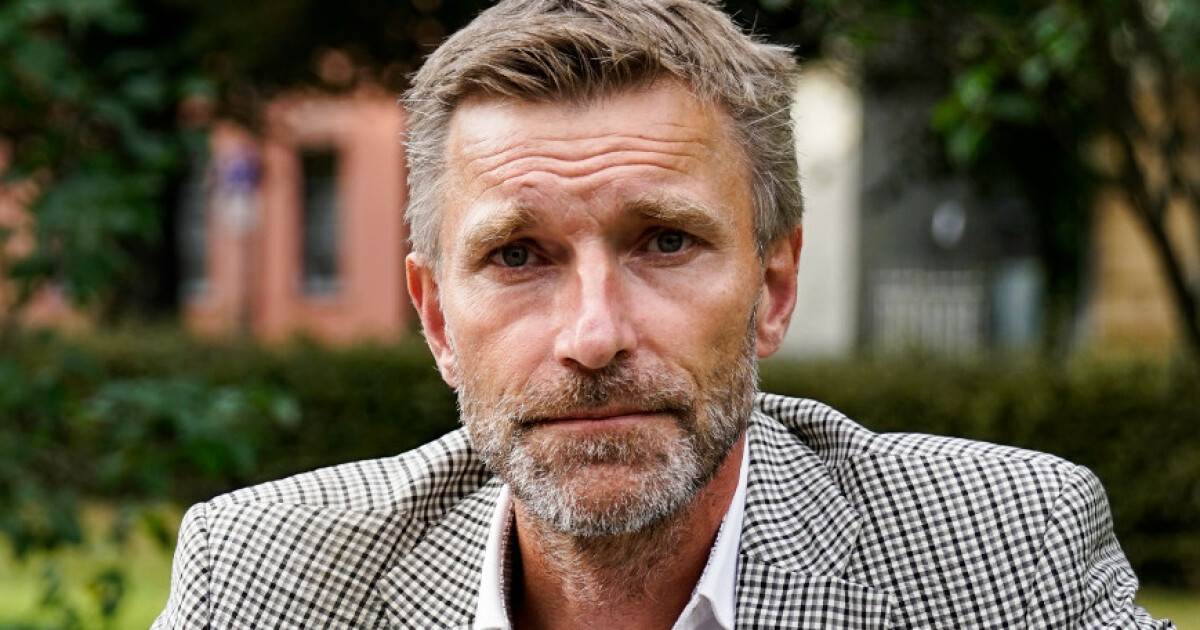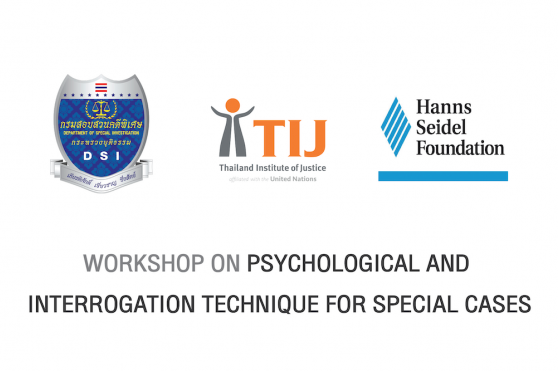“Investigative Interview” - Investigation Technique to Obtain the Truth without Force or Violence against the Alleged

“Torturing is a form of human rights violation at its core. It also contradicts the assumption of innocent until proven guilty. The psychological domination and intimidating investigation technique designed to obtain confession may not be as traumatizing as physical torture but they are merely the modification of the act of torturing, keeping the same goal of obtaining confession from the suspect at its heart. The mindset of the investigator remains unchanged. The approach does not contribute to any positive change and continue to strengthen use of intimidation.”
Joining TIJ Forum on “Way Out: New Pathway for Fact-Finding” organized by the Thailand Institute of Justice (TIJ) together with the Norwegian Center of Human Rights, Faculty of Law, Oslo University on the 14th of October 2021, was Dr. Asbjørn Rachlew, an expert from the Norwegian Center of Human Rights, Faculty of Law, Oslo University. Dr. Asbjørn has over 10 years of experience in the field of investigation and interrogation and more than a thousand times of victim, witness and suspect interrogation in criminal cases. Dr. Asbjørn is also a consultant, university professor and instructor in many police educational institutions worldwide. In this Forum, Dr. Asbjørn revealed the concept of changing the practice of suspect interrogation from the conventional technique determined to obtain “confession” to the new approach called “Investigative Interview”.
To adopt the new interrogation technique, it has to start from “shifting the mindset of the investigators from the conventional way. Investigators shall be provided with knowledge and methods which will motivate them to identify other assumptions or alternatives and test such assumptions directly. Instead of chasing only the information that they believe will incriminate the suspect.”, said Dr. Asbjørn.
From the study on the practice of Norway police conducted by Dr. Asbjørn’s team, it was found that the method of “psychological domination to obtain a confession” does not sincerely express empathy or respect of human dignity. Even more dangerous is that the police interrogation techniques are labeled classified documents, available only among the police and other relevant personnel.
Dr. Asbjørn provided that the investigative interview is an alternative to the officers. The founding concept and philosophy of this approach is the investigation technique based on the “innocent until proven guilty” principle, which is a sustainable and efficient method. In this regard, Norway has officially developed an “investigative interview” training program as inspired by the police in the United Kingdom. Norway is also one of the first countries in the world that changed its interrogation practices. The training program is named CREATIV which indicates the value or principle of the program itself.
CREATIV focuses on Communication, application of the Rule of Law, Ethics and Empathy, Active Consciousness, Building of Trust, Information and Verification.
The training program also includes lectures on theories and exercises videos focusing on European Commission suspect interview standard. Council of Europe’s Commission for the Prevention of Torture drafted a standard on suspect interview in Europe in the year 2002. The essence of the standard is that “interview of suspect in a criminal case is a technical endeavor which requires technical training.” There was also a lecture on human cognitive theory, witness psychology, decision-making theory, communication skill, types of false confession and ways to prevent them. Mistakes shall be emphasized and learned from to encourage the purpose of development.
The most important lecture in the program is the training on interview technique based on the PEACE model of the United Kingdom. PEACE model divides the suspect interview process into physical, case-related and psychological Planning and Preparation, Engage and Explain, Account, Closure and Evaluation.
At present, the “Investigative Interview” training program has gained interest from many countries worldwide. The training has been fully provided in Indonesia and it has been translated into Vietnamese, Chinese with growing interest from Lebanon and Thailand. The training had been supported and provided by TIJ in its collaboration with the Department of Special Investigation, Ministry of Justice, for 4 consecutive years. Currently, the United Nations is in the process of developing a universal approach to interrogation technique by officers. Experts from around the world were invited to attend and they concluded that the scientific path and upholding of human rights principles is the pathway to go. “Investigative Interview” has a research result to back up its crime-solving efficiency. Also, there will be the launch of an E-learning platform on investigative interview co-developed by the United Nations Office of Drug and Crime (UNODC) this December.
Mr. Gisle Kvanvig from the Norwegian Center of Human Rights, Faculty of Law, Oslo University added that the investigative interview will be successful when the approach is well-published for the understanding of relevant agencies as the strategy to obtain science-based evidence. There has to be sharing of experience or lessons to demonstrate that this technique can actually change the way of work and enable professional and efficient performance.
Mr. Ivah Fahsing, the co-speaker of this event, also provided that the human belief, bias and deduction will sway us toward the incorrect perception of the evidence and the case, leading to a tragic end of the victim and the suspect themselves. Hence, the new model of investigation is necessary.
The speaker also added that the investigative interview can be used in all cases, whether with the suspect or the victim, since it has the same target of obtaining relevant, accurate and true information within the scope of the law. “Because we do not know whether the person we arrested is a suspect or a victim or the victim can become a suspect as well.”
In this Forum, the practitioners in the justice system and Thai scholars also shared their thoughts which mainly support and agree with the principle of investigative interview. They agreed that it could boost the “confidence” of the public in the justice system. Some of them also reported on the progress of adopting the investigative interview in Thailand, including the restrictions of its application in the Thai justice system.





